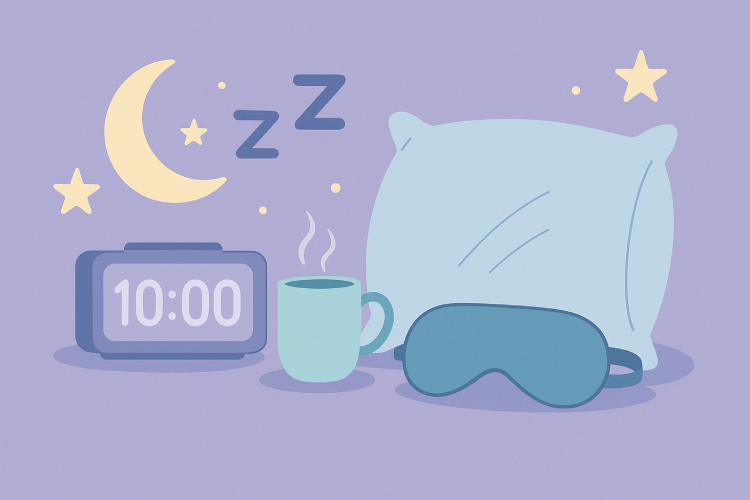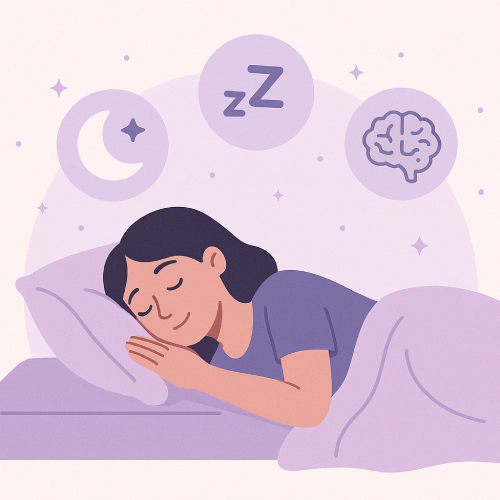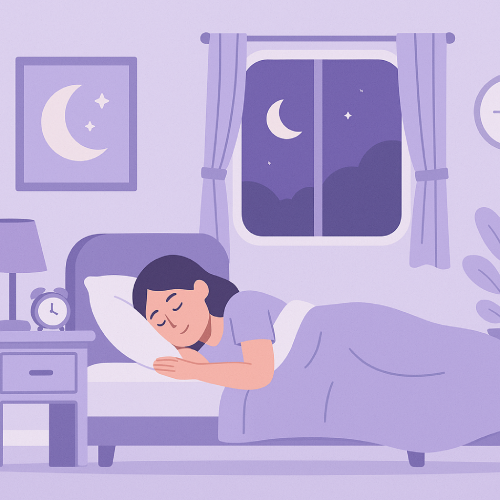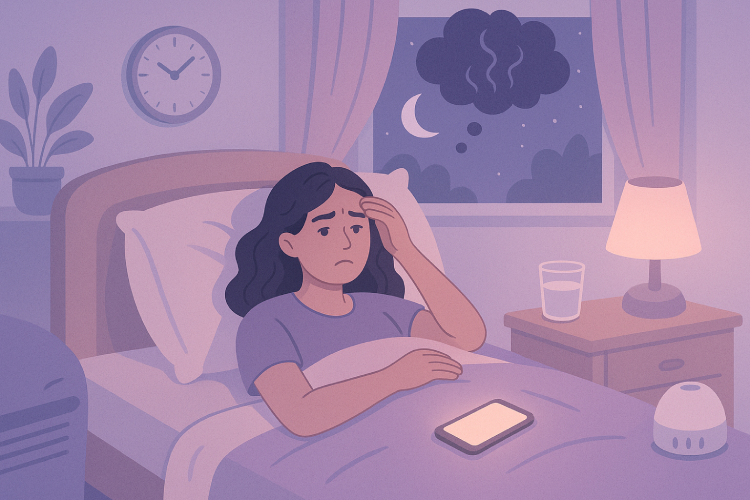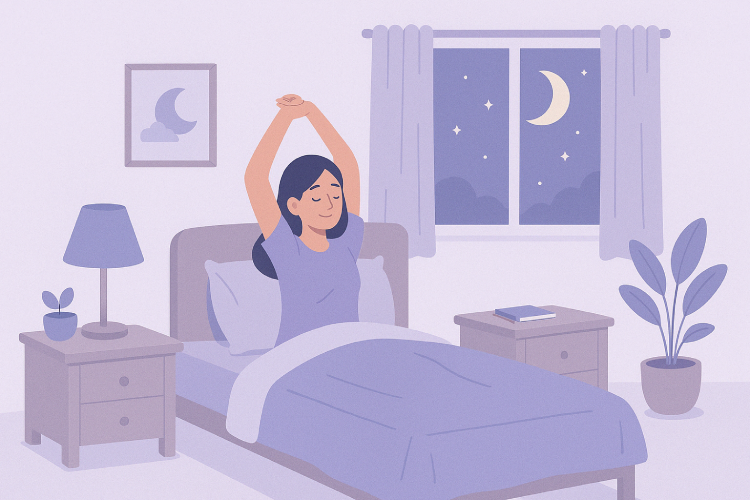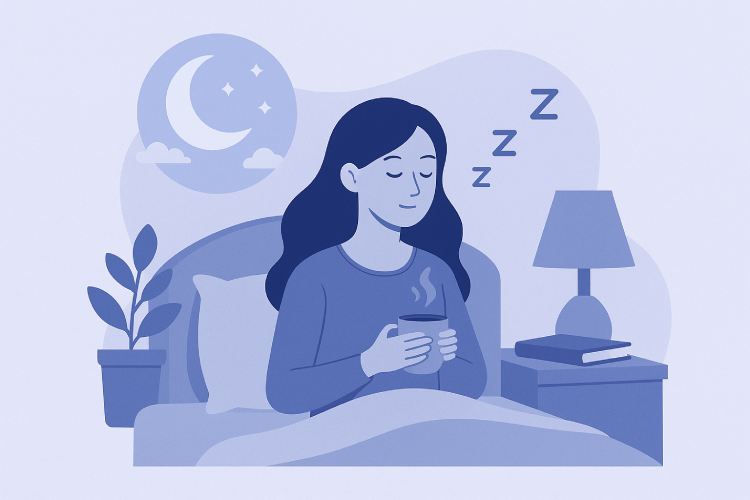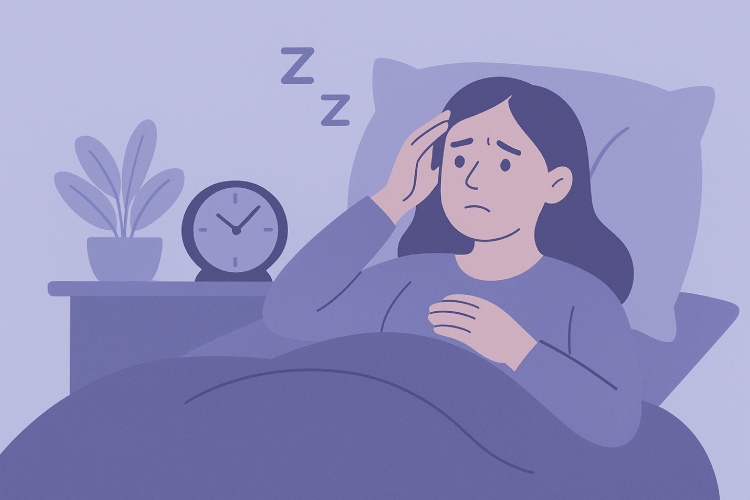10 Expert-Backed Tips to Help You Sleep Better Naturally
Getting a good night’s sleep isn’t a luxury — it’s essential for your physical and mental health. Yet, millions struggle to fall asleep or stay asleep. If you’re one of them, you’re not alone. Thankfully, there are natural, science-backed habits you can start today that may drastically improve your sleep quality.
Here are 10 practical tips to help you sleep better — no medication required.
🛏️ 1. Stick to a Sleep Schedule
Your body thrives on routine. Go to bed and wake up at the same time every day — even on weekends. Over time, this will reinforce your body’s natural sleep-wake cycle.
📱 2. Limit Screen Time Before Bed
The blue light emitted by phones, tablets, and computers interferes with melatonin production — the hormone that signals it’s time to sleep. Try to avoid screens at least 60 minutes before bedtime.
☕ 3. Watch Your Caffeine Intake
Caffeine can stay in your system for 6–8 hours. Avoid coffee, energy drinks, or even chocolate in the late afternoon or evening.
🧘 4. Create a Calming Nighttime Routine
Wind down with activities like light stretching, a warm shower, journaling, or deep breathing. This signals to your brain that sleep is coming soon.
🌙 5. Make Your Bedroom a Sleep Sanctuary
Keep your room cool, dark, and quiet. Use blackout curtains, a white noise machine, or even an eye mask. Your bedroom should be for sleep and relaxation — not work or entertainment.
🌿 6. Try Natural Sleep Aids
Herbal teas like chamomile or supplements like magnesium or melatonin may help you relax naturally. Always consult your doctor before starting any new supplement.
🏃♂️ 7. Exercise, But Not Too Late
Regular movement during the day can promote deeper sleep at night. Just avoid intense workouts close to bedtime as they can overstimulate your body.
🧠 8. Don’t Stress About Sleep
Worrying about not sleeping actually makes it harder to sleep. Try mindfulness, gratitude journaling, or gentle meditation before bed to clear your mind.
🌤️ 9. Get Morning Sunlight
Exposure to natural light in the morning helps regulate your circadian rhythm. A quick walk or even sitting by a sunny window can make a big difference.
❌ 10. Avoid Long or Late Naps
Daytime naps longer than 30 minutes or late in the day can interfere with nighttime sleep. If you need a nap, keep it short and earlier in the afternoon.
🧘 Final Thoughts: Small Steps, Big Results
Improving your sleep doesn’t require a complete lifestyle overhaul. Even just implementing a few of these changes consistently can lead to noticeable improvements. Start small — and stick with it. Better nights (and brighter mornings) are just around the corner.

